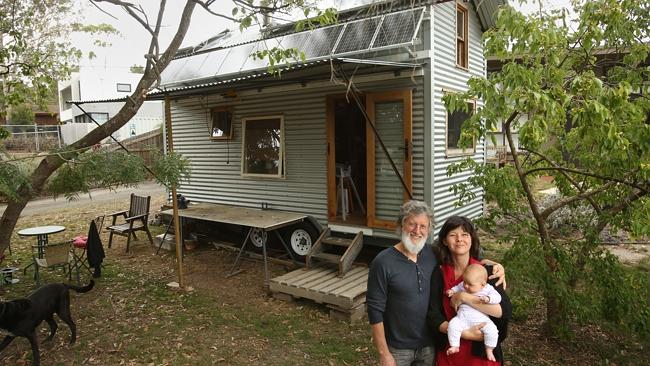Want To Get Away For Good? Try Life Unplugged
For author and self-sufficieny lifestyle expert, Nick Rosen, a choice to live off the grid wasn’t simple, but the answer was clear. “We’re all consuming too much. One of the big motivations for off-grid living is a weariness of the consumer society. It’s not necessarily anti-consumer, but post-consumer.” He decided to get away from it (mostly) all. And others are following his lead.
There has been a sweeping movement across the country that is leading many Americans to choose to unplug from one or more “grids.” Although the reasons are many, Rosen has spotted some trends.
Are you ready?
Imagine living off the land, producing your own food and energy and getting away from the consumption economy that drives so many of our decisions. For more and more people, off-grid living has become the way to go. Although statistics on Americans who choose to take this route are hard to come by, trends suggest that the number is increasing. Some people do it to be self-reliant or more in touch with nature. Many go off-grid to step away from society. Still others do it because it is the most financially viable option available to them.
Rosen says people go off the grid for a variety of reasons, and they vary how deeply they go off-grid. “You can’t get off all of the grids all the time,” he says. “It’s a question of which grids you choose to get off of and in what way and for how long.” Some people live off the grid part of the year for leisure purposes, taking a few months off from their jobs so they can live in a more relaxed manner. Others get themselves off the public electrical or water systems but still participate in what Rosen calls the “car grid” or the “supermarket grid” or “bank grid.”
Off-grid is green
Although a desire to go green isn’t usually the primary driver for people going off-grid, the lifestyle has many environmental benefits. For one, most off-grid homes or communities are in places where nature plays an important part of their everyday lives. Rosen says. For another, people who are living off-grid do not tend to fill their lives with the same amount of stuff as your average consumer. Off-grid homes eschew the American tendency toward overly large residences. “We’re over-housing ourselves,” Rosen says. “That’s been very big feature of American society since the ’50s: The overly large house with the big heating and cooling bills, storing vast amounts of unnecessary possessions.” Another green factor is a lowered reliance on transportation.
Other motivations: Fear and finances
“Perhaps the biggest motivation at the moment is a loss of trust in the government and the ability of social networks to look after us,” Rosen says. These are people who feel as if society no longer provides the sense of safety that they require.
For others, going off-grid is an economic necessity brought about by hard times. “A lot of the people I met when I was traveling around the States writing my book were people who had to hand back the keys to their properties and find a new lifestyle. In one case they bought some land on eBay and moved themselves into a trailer. And they find themselves living a more ecological lifestyle just by the fact that they’re generating their own electricity and growing their own food, but they were motivated by financial matters rather than by more pure desire to tread more lightly on the planet.”
How much do you really need?
Rosen says most families could go off the grid with as little as a half an acre, “as long as it’s the right half-acre.” Ideal locations would have some woodland, an area for agriculture, enough light for solar power and a good source of water, either a well or a stream. “The era of 40 acres and a mule has been replaced by the era of a half an acre and a laptop and a solar panel,” he says.
The next generation?
Going off the grid today doesn’t mean reinventing the wheel. “The existence of the Internet that has made living off the grid a real choice and a real possibility for so many people,” Rosen says. “There’s a huge generation of 1970s back-to-the-land movement people who are now getting pretty old and they’re sitting on these huge tracks of land that can’t be broken up.”
